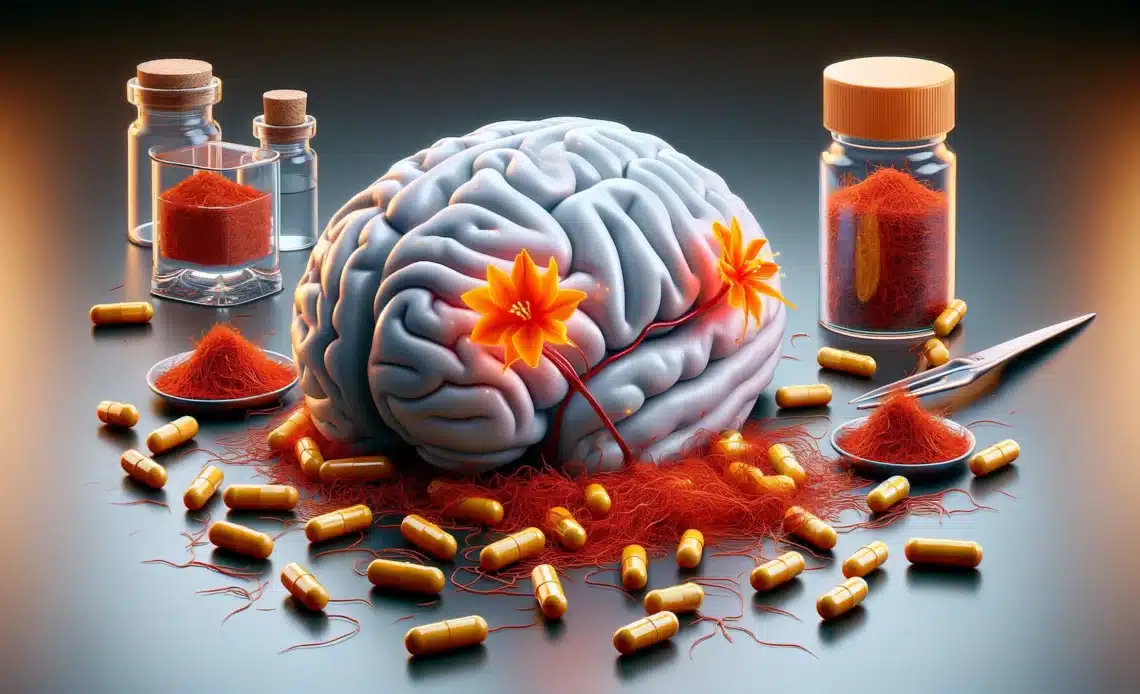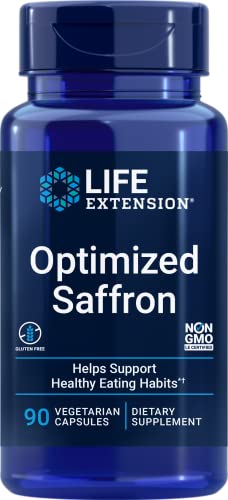
Saffron, known for its vibrant color and distinctive flavor, extends beyond its culinary uses. This precious spice, with a rich history in traditional medicine, is now capturing modern science’s interest, particularly in treating Attention Deficit Hyperactivity Disorder (ADHD). ADHD, a prevalent neurodevelopmental disorder often identified in childhood, presents challenges like hyperactivity, difficulty in maintaining attention, and impulsivity. These symptoms can significantly impact an individual’s daily life and social interactions.
While conventional medication plays a crucial role in managing ADHD, there’s an emerging trend in exploring natural alternatives. Among these, saffron stands out. Recent studies hint at the potential of saffron in offering similar benefits to those of standard ADHD treatments, indicating a promising avenue for those seeking holistic approaches.
What Science Says About Saffron and ADHD
The exploration of saffron’s potential in ADHD treatment is gaining momentum, with its promise extending beyond the initial findings. While the current body of research is still in its early stages, the initial results suggest a wider scope of benefits that saffron might offer in managing ADHD symptoms.
Saffron’s potential as both a standalone and a complementary therapy, particularly in conjunction with conventional medications like methylphenidate, highlights its versatility. Methylphenidate, a well-known central nervous system stimulant, has been a mainstay in ADHD treatment. However, the 2019 study showcasing saffron’s comparable efficacy opened new avenues for alternative or supplementary treatment options. The daily administration of 20–30 mg of saffron over six weeks mirrored the benefits of methylphenidate, especially in reducing inattention and hyperactivity.
Further research in 2022 expanded on these findings, revealing saffron’s specific efficacy in reducing hyperactivity symptoms, while methylphenidate showed a greater impact on inattention. This distinction is crucial, as it suggests saffron could be particularly beneficial for individuals where hyperactivity is a predominant concern.
Moreover, saffron’s role in improving sleep quality, a frequent issue in ADHD, adds to its therapeutic value. The 2021 and 2022 clinical trials investigating the combination of saffron with methylphenidate indicated a synergistic effect, leading to improved outcomes over methylphenidate alone.
Adding to this, recent studies are exploring saffron’s anti-inflammatory and antioxidant properties, which could play a role in its effectiveness against ADHD symptoms. Inflammation and oxidative stress have been implicated in ADHD, and saffron’s potential to mitigate these factors may contribute to its therapeutic effects.
Furthermore, saffron’s natural origin and relatively lower incidence of side effects compared to traditional ADHD medications make it an appealing option for those seeking alternative treatments.
Despite these encouraging developments, the consensus in the scientific community calls for more extensive and large-scale studies. The current research involves small groups and short-term trials. Comprehensive research is necessary to fully establish the efficacy, dosage, and long-term safety of saffron in ADHD treatment, ensuring that it can be recommended as a reliable and effective therapy.
How Saffron Helps With ADHD
The mechanism by which saffron aids in managing ADHD symptoms is a subject of increasing scientific interest. While the exact pathways are not entirely understood, current research points to a combination of saffron’s impact on neurotransmitters and its neuroprotective properties.
Neurotransmitter imbalances are believed to be central to ADHD’s pathology, providing a rationale for the effectiveness of stimulant medications. Saffron appears to interact with key brain chemicals, such as glutamate and dopamine, in a manner similar to methylphenidate, a common ADHD medication. These neurotransmitters play a significant role in regulating mood, attention, and executive functions, which are areas typically affected in ADHD.
Additionally, saffron’s neuroprotective capabilities are gaining attention. A 2022 review highlighted the spice’s consistent protective effects against various neurological disorders. This protection is largely attributed to its anti-inflammatory and antioxidant properties. By combating oxidative stress and inflammation, saffron may help mitigate the neurological underpinnings of ADHD.
Oxidative stress, characterized by an imbalance between free radicals and antioxidants, leads to cellular damage and has been implicated in numerous disease processes, including neurodevelopmental disorders. Saffron, with its rich antioxidant content, could offer a defense against this oxidative damage. This is particularly relevant given a 2018 review suggesting that antioxidants like saffron could shield neurons from damage, a crucial aspect in treating neurodevelopmental conditions like ADHD.
The potential of saffron in ADHD treatment extends further when considering its influence on neuroplasticity and brain function. Emerging research indicates that saffron may support brain health by fostering neural connections and promoting the regeneration of brain cells, which could be beneficial in ADHD management.
In summary, saffron’s potential in ADHD treatment lies in its dual role: modulating neurotransmitter activity and offering neuroprotection through anti-inflammatory and antioxidant actions. This multifaceted approach could address both the symptoms and underlying neurobiological factors of ADHD, making saffron a promising candidate for further investigation in this field. However, comprehensive studies must fully understand its mechanisms and validate its effectiveness as a reliable treatment option.
How to Use Saffron for ADHD Treatment
As an emerging therapy for ADHD, the optimal dosage of saffron remains an area of exploration. There is no established universal dosage for its use in ADHD, and recommendations can vary, especially with dietary supplements where doses might go up to 100 mg daily.
In the groundbreaking 2019 study, a daily dosage of 20–30 mg was found effective in children aged 6 to 17 years, showing improvement in symptoms of inattention and hyperactivity within just three weeks. Another clinical trial in 2022 took a slightly different approach, combining 15 mg of saffron twice daily with methylphenidate over six weeks.
Saffron is available in various forms, including powder, capsules, and threads – the latter being the hand-picked, dried stigmas of the Crocus sativus flower. Its versatile forms allow for easy incorporation into daily routines, whether as a supplement or integrated into meals.
Potential Side Effects of Using Saffron
Generally, saffron is considered safe when taken within recommended dosages. However, ongoing research is crucial to fully understand its safety profile in human subjects. The known side effects associated with saffron include vomiting, vertigo, dizziness, loss of appetite, headaches, bloody urine, nausea, and possible allergic reactions.
Particular caution is advised for pregnant individuals, as saffron has been known to stimulate the uterus. Therefore, it’s crucial to consult a healthcare professional before considering saffron as a treatment option for ADHD. This consultation is vital to evaluate the potential interactions of individual health conditions with existing medications and to determine an appropriate and safe dosage.
In expanding the understanding of saffron’s role in ADHD treatment, future research should not only focus on determining effective dosages but also on comprehensively assessing its long-term safety and potential interactions with conventional ADHD medications. This holistic approach ensures that saffron, if proven effective, can be safely integrated into ADHD management strategies, offering an alternative or complementary option to traditional treatments.
The Future of Saffron in ADHD Treatment
The use of saffron as a potential treatment for ADHD represents a burgeoning field of research, and the early evidence points towards a promising future. Saffron’s ability to influence brain chemicals that are pivotal in ADHD, coupled with its anti-inflammatory and antioxidant properties, positions it as a potential neuroprotective agent.
The current understanding of saffron’s effectiveness and appropriate dosage for ADHD is still developing. Given this, it’s essential for individuals considering saffron as a part of their ADHD management plan to consult with healthcare professionals. Such consultation ensures a safe and tailored therapeutic approach, taking into account individual health profiles and existing treatment plans.
Looking ahead, the role of saffron in ADHD treatment hinges on further scientific inquiry. Comprehensive studies are needed to establish standardized dosages, understand its long-term effects, and explore how it interacts with traditional ADHD medications. This research will be crucial in determining whether saffron can be reliably recommended as a primary or supplementary treatment for ADHD.
In summary, while saffron shows potential as a novel approach to ADHD treatment, its journey from a traditional spice to a therapeutic agent is still underway. Continued research and clinical trials will be key in unlocking its full potential, offering hope for a natural, effective treatment option in the ADHD therapeutic landscape.

